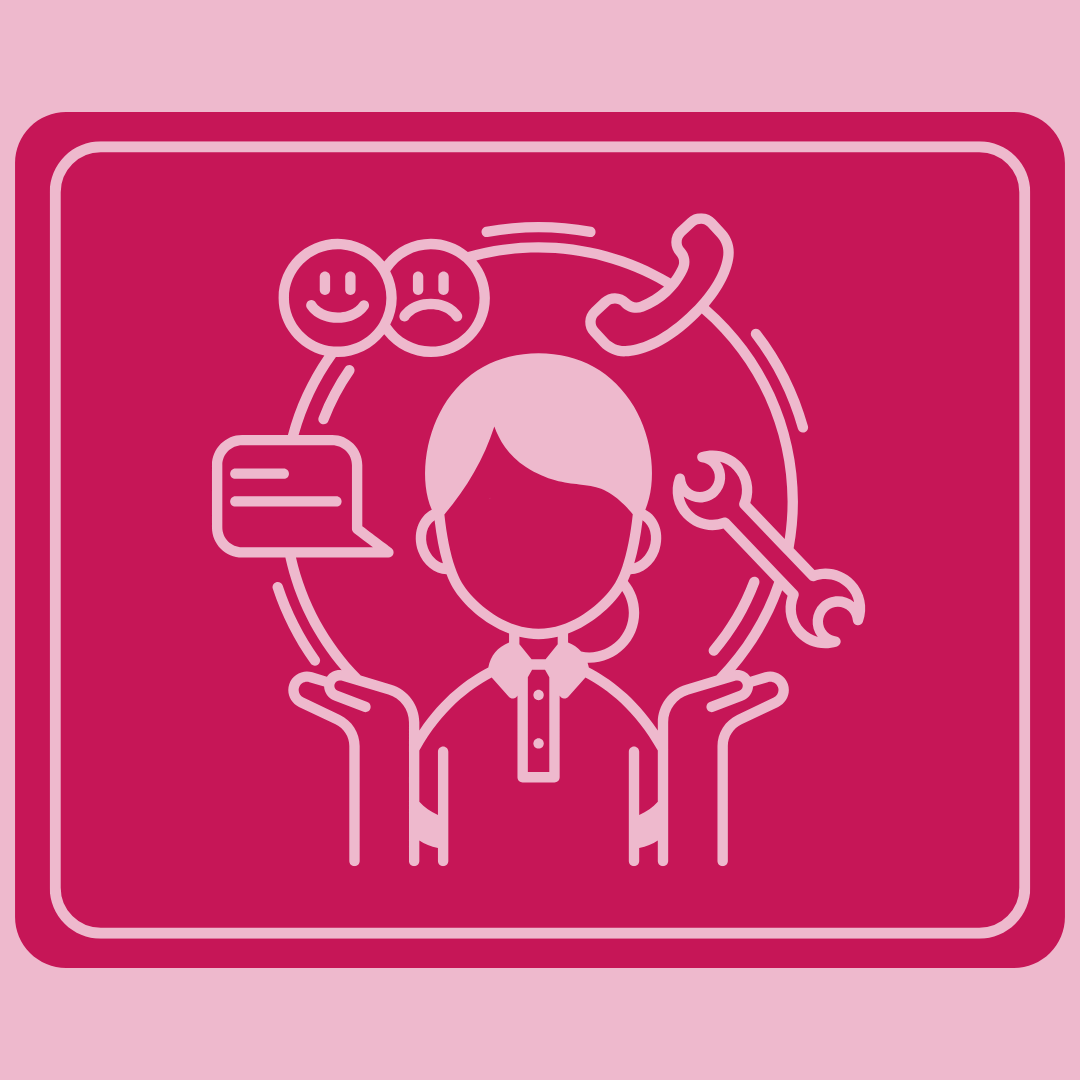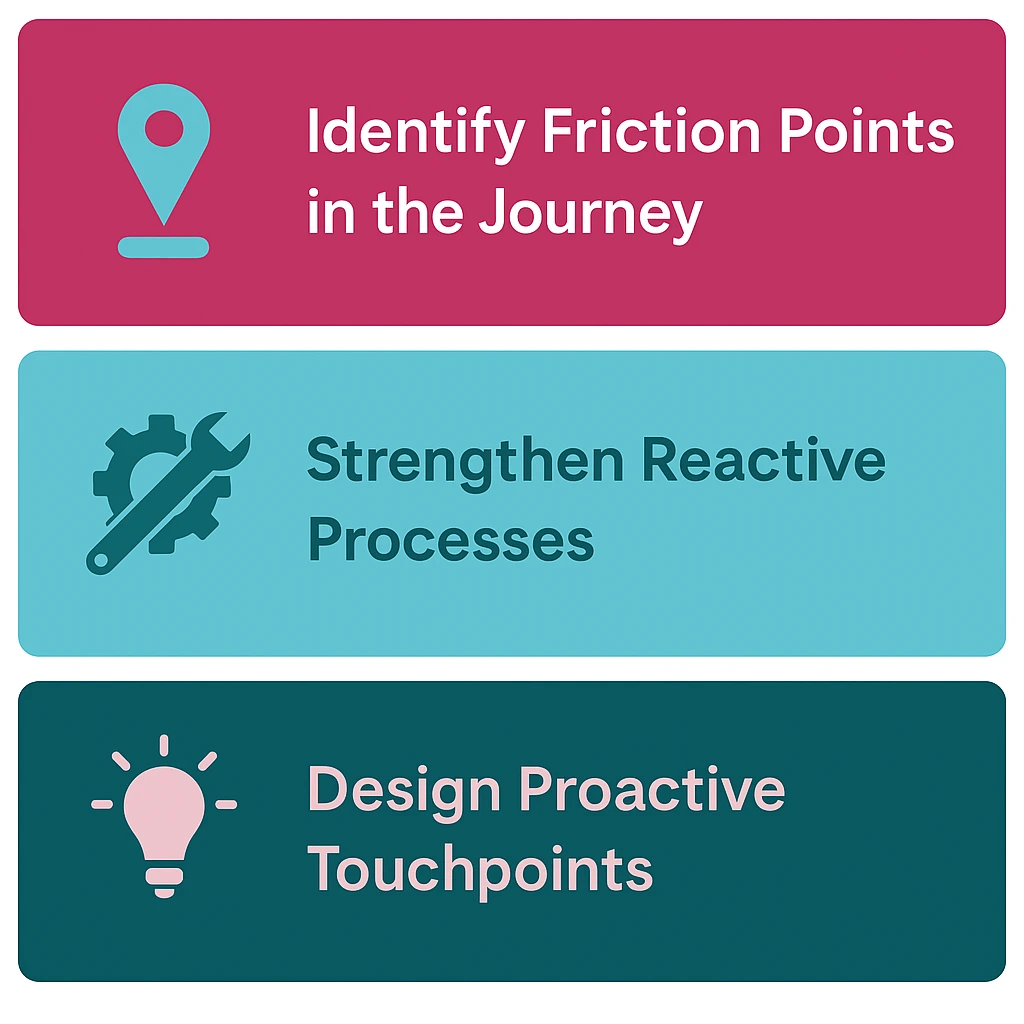
Blog
Proactive Customer Service: The Key to Customer Retention
How blending strategies boosts Customer Experience and customer retention
The Secret to Exceptional Customer Service
As a customer service manager, you're likely familiar with the traditional approach to support—being reactive and resolving incoming requests as efficiently as possible. It’s what keeps the wheels turning. But what if we told you there’s a smarter way to engage your customers?
A new generation of Customer Experience Strategies is emerging, blending proactive and reactive service into one seamless system. At The KALEPA Group, we see this as more than a trend—it's a shift toward sustainable customer-centricity and long-term customer retention.
In this blog, we explore how proactive customer service, when integrated with a strong reactive foundation, can elevate your entire CX approach—and future-proof your service organization.
The Limits of Reactive Service
Traditional Customer Service is reactive by nature: customers raise an issue, and the organization responds. While this approach ensures accessibility and responsiveness, it also means you're always one step behind. You’re solving, not preventing.
This “wait-then-fix” mindset can result in:
Customer frustration from repeated issues
Increased operational costs and ticket volumes
Missed opportunities to build trust and exceed expectations
Reactive service remains essential—but on its own, it’s no longer enough.
Proactive Service: The Missing Piece
Proactive Customer Service is about anticipating needs before they become problems. It turns insights into action, allowing your teams to resolve concerns before the customer even notices them. This strategy is at the core of any Customer Experience Strategy that aims to delight and retain.
Proactive service enables you to:
Prevent recurring issues with predictive insights
Personalize support based on behavior and preferences
Engage customers during key moments in their journey
Reduce inbound volume and shift resources to high-impact areas
The result? Happier customers, empowered teams, and a stronger brand reputation.
How to Combine Reactive and Proactive Approaches
The real power lies in the combination. Here’s how to build a blended service model:
- Identify Friction Points in the Journey
Use journey mapping and feedback analysis tot uncover moment where customers typically reach out. These are your proactive opportunity zones.
➜ Discover all details: Journey Mapping
- Strenghten Reactive Processes
Ensure your foundation is solid: fast response times, empathetic agents and consistent quality.
Efficiency here creates capacity for proactive work.
- Design Proactive Touchpoints
Examples include:- Onboarding check-ins to ensure smooth adoption
- Proactive notifications about delays, renewals or updates
- Usage-based tips or alerts via email or chat
- Tailored outreach from customer service experts with relevant solutions
These touchpoints create moments of value—before frustration can set in.

The Benefits of a Blended Strategy
Higher customer satisfaction through frictionless, helpful interactions
Stronger customer retention thanks to consistent, thoughtful engagement
Operational efficiency with reduced ticket volume and smarter routing
Deeper insights into customer behavior for strategic improvements
Competitive advantage in an increasingly experience-driven market
Final Thought: The Future Is Anticipatory
Customer expectations are nuanced: people value efficiency, yes, but also empathy and transparency. A proactive mindset fits this cultural context well. Companies that lead with customer-driven service strategies are increasingly seen as more trustworthy and attractive—especially in B2B sectors. By investing in proactive care, you're not only reducing complaints but actively building customer loyalty and advocacy.
At The KALEPA Group, we help organizations shift from reactive survival to proactive leadership. Because great service doesn’t just respond—it anticipates. And that mindset shift is what turns good companies into customer-driven ones.
So, are you ready to build a service model that truly reflects your brand promise and earns long-term loyalty?



